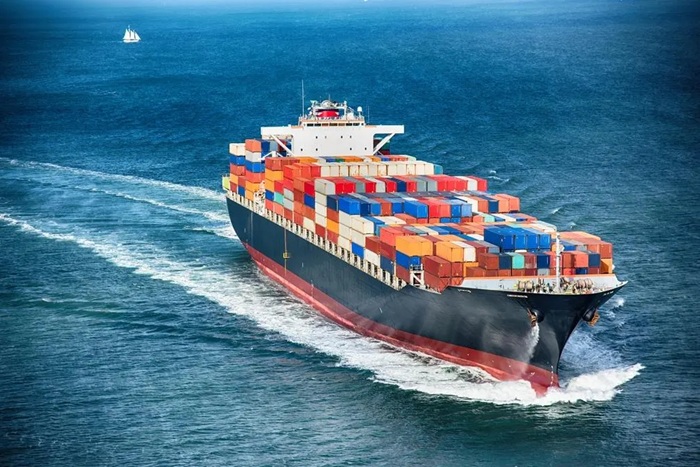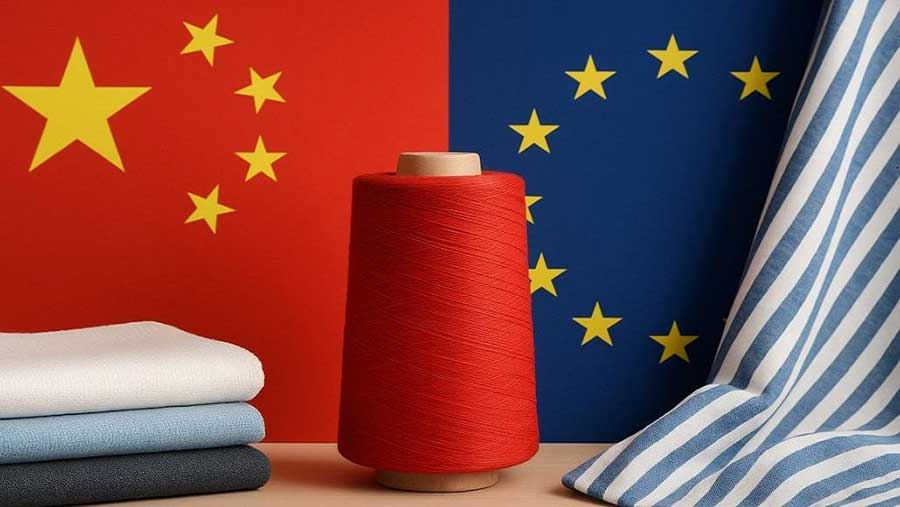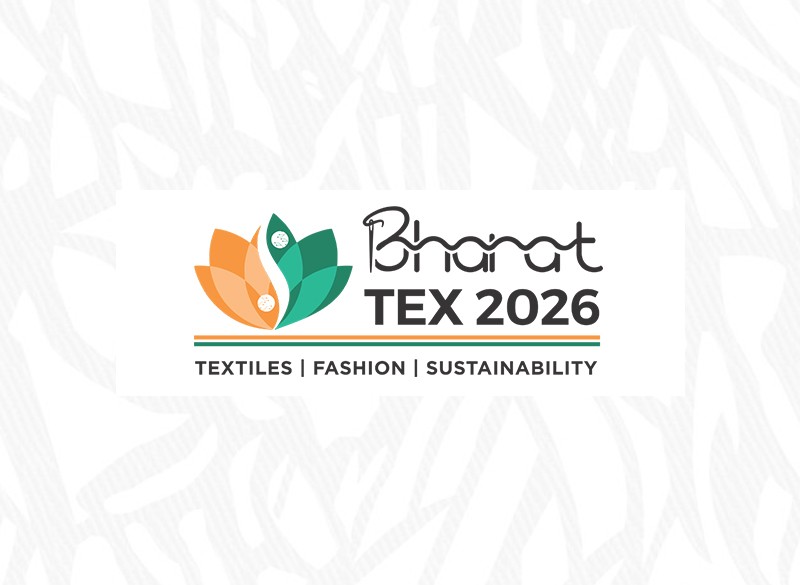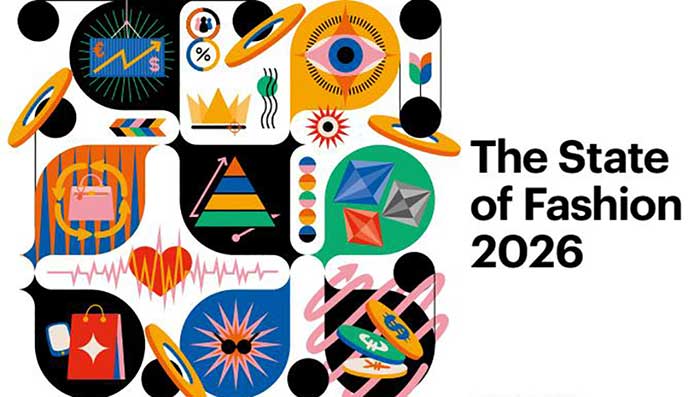FW
AATCC received 50 entries, with 95 students participating from 14 colleges and universities. Students were challenged to showcase their skills in business, marketing, and merchandising by conducting a business model, determining a marketing strategy, and developing merchandising tools and products for an integrated new apparel line focused on and inspired by a specific outdoor or indoor athletic activity (cycling, running, group fitness, hiking, etc.). The new line had to transition from activity to everyday wear and incorporate a use case and supply chain of a realistic technology (e-textiles, chemical technologies, materials technologies, etc).
Among the winners are Impervious Apparel by Hannah Norum and Mylisa Krueger, Oregon State University; Equilibre: A Work to Workout Clothing Line by Megan Singleton and Mallory Hayes, North Carolina State University; and Quick Fix by Mary Lee, Lyndee Johnston, Oksana Topchiy, and Renea Wright, University of Wyoming.
The American Association of Textile Chemists and Colorists (AATCC), based in the US, is the world’s leading not-for-profit association serving textile professionals since 1921. It provides test method development, quality control materials, and professional networking for members in about 50 countries throughout the world. It provides scholarships focused on textile design, merchandising, sciences, and engineering.
Kentwool Inc. and American Woolen Company have adopted a vertically-integrated business model that controls the entire production process from yarn spinning to finished product. This has helped the companies to successfully collaborate with premium apparel brands focused on wool, a natural fiber known for its thermal comfort, breathability and ability to be worn across seasons.
Established in 1843 in Pennsylvania, Kentwool owns a 135,000-sq. ft. state-of-the-art wool-based yarn spinning facility in nearby Pickens, which houses approximately 20,000 spindles and produces yarn from 100-percent wool or wool/man-made blends.
American Woolen Company grew to become the world’s largest wool manufacturer in the early 20th century. But the company diminished and become primarily an importer and wholesaler of woolen blankets. Long purchased the brand in 2013, and later had the opportunity to invest in a manufacturing location in the form of historic Stafford Springs, Conn.-based Warren Mill – a cashmere and camel hair woolen fabrics plant with more than 150 years of history.
The US wants Bangladesh to decide on the tenure of the buyers’ initiatives Accord and Alliance. Delays in approving extensions of Accord and Alliance would send a negative signal to buyers and consumers that Bangladesh was not committed to workplace safety. Factory safety and labor rights are a priority for US legislators, civil society, businesses and consumers.
Following the Rana Plaza building collapse in April 2013 that killed more than 1,100 people, European retailers formed the Accord on Fire and Building Safety in Bangladesh and North American buyers announced the Alliance for Bangladesh Worker Safety, which undertook a five-year plan, which set time frames and accountability for inspections and training and workers empowerment programs.
Accord has already obtained conditional extension for six more months as the tenure of the platform is going to end on May 31. The extension of the time frame for Alliance remains under process and the time frame of the platform would end on June 30. Alliance may however, obtain an extension up to December 31 this year.
The United States also wants Bangladesh to resolve the long-standing labor rights concerns so that Bangladesh can focus on preparing for its future as a middle income country and, eventually, a developed country.
Australian technology company Nanollose has developed a sustainable fabric from Nullarbor, a fiber created using natural coconut by-products. This is a first of its kind fabric marking a breakthrough for an industry that is urgently seeking sustainable alternatives to rayon and cotton, both of which cause significant environmental issues. Nullarbor is named from Latin phrase nullus arbor, which means “no trees.”
No trees or plants are impacted by the production of Nanollose’s Nullarbor fiber and fabric, and the process requires very little water. The result is a fiber that can be used to make clothing and textiles, but with a dramatically reduced environmental footprint. The company will initially tap into the established coconut industry to secure pilot-scale supply of the raw material, but when operating on a larger scale, waste streams from bigger industries will be used.
KaHa, a Singapore-based end-to-end smart wearable IoT platform company, has launched a concept smart wearable body and wellness-monitoring T-shirt prototype developed in partnership with SIMTech. KaHa has been working alongside SIMTech technology and supply chain partner for the research institute’s latest Collaborative Industry Project (CIP) on Smart Apparel Innovation. This CIP program, focusing on Flexible Hybrid Electronics (FHE), aims to accelerate the adoption of advanced technologies to tap the huge potential of smart wearable electronics and promises to help enhance the local smart wearable manufacturing ecosystem The t-shirt is considered to be in a prototype stage that promises to capture body vitals and transmits it to a detachable Smart Module.
According to the company, the global apparel market currently stands at US$3.6 billion (S$4.4 billion), and the latest IDTechEx report forecasts the global wearable tech market to reach US$160 billion by 2025. Singapore’s Smart Nation initiative is acclaimed to develop key pillars of growth, with wearable tech being one of them.
The smart apparel prototype was showcased to over 200 attendees at the CIP’s Kick-off Seminar for the second batch of CIP participants. The event is attended by garment manufacturers for international brands, companies from the electronics, consumer lifestyle, healthcare, hand tools, apparel, textile and fashion industries. The first batch of 10 CIP participating companies started in February 2018.
Co-developed by KaHa and SIMTech, the smart apparel prototype has printed Flexible Hybrid Electronics which claims to capture body vitals and transmits it to a detachable Smart Module on the apparel. The module cleans the data, which is then shared with KaHa’s IoT platform to be analysed. It monitors heart rate and automatically alerts users when their individual maximum prescribed heart rate reaches 80 per cent.
Hyosung is setting up a spandex plant in India by 2019. Hyosung has selected India and Vietnam as the strategic bases for ‘100-year Hyosung. The spandex plant that the company will build in India is expected to lay the foundation for making inroads into the domestic market of the country.
In the first stage, Hyosung plans to invest $100 million for a new spandex plan. It is planning to set up the plant near Aurangabad, Maharashtra, and complete the construction of the plant by 2019. The company will continuously increase investment as market demands and growth are forecast.
The spandex market in India has been growing by more than 16 per cent a year on an average from 2012 to 2017, and it is forecast that it will grow by more than 12 per cent a year, while the market size will reach $200 million by 2020.
Hyosung’s spandex brand ‘creora’ accounts for about 60 per cent of the Indian market. It is focusing on the sale of spandex for Muslim wear like hijab, lingerie, sportswear, denim and diapers. By 2020, Hyosung will begin to concentrate on expanding the high-value-added premium market, after the new plant will become fully operational, also, the company is planning to consolidate its market dominance, creating high profits by increasing its market share to 70 per cent.
The new plant of Hyosung will help related industries such as weaving, knitting, dyeing and sewing to grow and lead to an employment growth, including hiring of competent manpower and invigoration of the overall economy.
The Trump administration’s had proposed tariffs on goods from China may include home textiles, according to an alert from the Home Fashion Product Association’s (HFPA) legal counsel. On May 17, The National Council of Textile Organizations (NCTO) gave evidence to The Office of the U.S. Trade Representative (USTR) in favor of textile tariffs. The U.S. Industrial Fabrics Institute (USIFI) and Narrow Fabrics Institute (NFI) joined the NCTO in a 24-page statement supporting the action.
The Home Fashion Products Association (HFPA) has issued a letter rebutting the argument for placing tariffs on Chinese textiles imports. The shift of home textiles manufacturing to Asia was highly troublesome, and several companies did not survive the transition, the HFPA noted in its argument against the proposal. Charging a tariff on Chinese imports would deal a hard blow to the roughly 500 U.S.-based home textiles companies in the business.
The letter was sent last week to New York Senators Chuck Schumer and Kirsten Gillibrand, the Office of the United States Trade Representative, Secretary of Commerce Wilbur Ross, New York Congresswoman Carolyn Maloney, the Chair of the Ways and Means Committee, The Chair of the Finance Committee and President Donald Trump.
NCTO president and CEO Auggie Tantillo asserted that China’s domination of global textile markets has been aided by intellectual property theft at the recent USTR hearing. In response, the HFPA noted that some US home textiles importers still operate substantial domestic “fill and finishing” operations employing thousands of employees that would be financially hobbled by tariffs.
The letter addressed the “alleged ‘domestic industry’” support for higher tariffs as a means of revitalizing U.S. manufacturing.
The White House announced it will impose a 25 per cent tariff on $50 billion worth of Chinese technology goods. The list of covered imports is scheduled to be published June 15. The original list of goods slated for tariffs earlier this spring did not include textiles.
VDMA was held in Mumbai on May 15 to 16, 2018. About 370 decision-makers and experts from the textile and nonwoven related industry attended the conference. German textile machinery engineering received the highest marks among the visitors. About 57 per cent visitors had very good and 38 per cent have had good experience with machines and components from German suppliers. The performance and service promise as well as the high quality standards have made German machine suppliers reliable partners in India and other countries.
Around 74 per cent of the visitors plan to expand their production capacities with new machines and components whereas 26 per cent intend to replace old machinery by new machines and components.
The technology topics along the entire textile value chain were meant to help the Indian industry fulfill their expansion plans and meet the challenges such as rising salary costs and shortage of labor in industrial regions.
India is an important market for the German textile machinery industry. Many German machinery builders have longstanding relations with Indian customers and quite a number of them also provide production plants and training centers in India. While the event on May 15 to 16 focused on customers, a training session at VJTI in Mumbai was addressed to future engineers. More than 220 textile manufacturing and mechanical engineering students followed the technical presentations.
Fashion ’18 will be held in the US on June 2. This is Drexel University’s annual fashion show. Each year, Drexel’s design and merchandising seniors work behind the scenes to produce, direct and execute the fashion show. Putting their years of education and practice to test, students help coordinate public relations and marketing, the selection of models and garments and facilitate ticket sales.
Fashion ’18 is a collaboration across multiple majors. Music industry students work with designers to arrange the music selection for each collection and graphic design students assist with the visuals. Some Drexel students also model in the show alongside professionals.
Fashion ’18 includes senior and graduate collections in women’s wear and men’s wear as well as designs in children’s, tailoring, lingerie, evening, swimwear and experimental categories. The show will be one of Drexel’s largest — with 34 senior and graduate designers debuting their collections on June 2 after months of cultivating their ideas and inspirations into reality. Eligible student collections have the opportunity to be honored in categories, including best in show, most creative and saleable and excellence in illustration.
This year’s panel of judges will include representatives from Neiman Marcus, Gentle Monster, Nicole Miller, Frank Agostino and Joan Shepp.
Cotton prices have increased from around Rs 350 to Rs 400 per quintal and are likely to remain high due to an increase in international market prices. According to P Alli Rani, CMD, Cotton Corporation of India (CCI), cotton prices usually increase during this time in the season due to slowdown in arrival. And with increasing demand from spinning mills and ginners, these prices are likely to remain firm for sometime.
So far, 320 lakh bales have arrived in the market and the season is likely to continue for another 30 days. Arrivals have slackened to 0.5 lakh bales a day, thus increasing the prices. According to cotton ginners, market sentiment is positive due to the speculation that demand from China is surging due to depleting buffer stock. China, earlier, had a buffer stock for one-and-a-half years and this has now reduced to a year’s stock. Exports from India, therefore, are likely to touch 75 lakh bales instead of the originally estimated 65 lakh bales.












